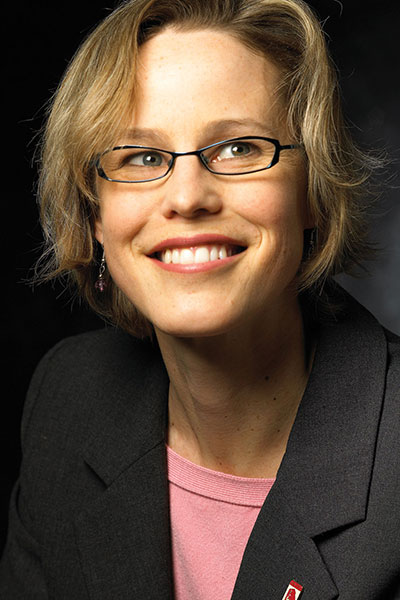How Mindfulness Can Help You Reclaim Your Life After Cancer
by Linda E. Carlson, PhD, CPsych
As a clinical psychologist, I have had the privilege of introducing thousands of cancer survivors and their family members to mindfulness meditation over the last 20 years. I have seen them arrive nervous, tearful, sad, worried, sleepless, and in pain. They are afraid of when or whether their cancer might come back and unsure of how they will cope with the uncertainties the future holds, as well as the loss of control they feel in their lives. And I have shown them how mindfulness can be the perfect approach to help them cope with these concerns.
What Is Mindfulness?
Mindfulness is a simple concept: it’s defined as present-moment awareness with a non-judgmental attitude. It’s learning to be in the moment and accept things as they are, without needing anything to be different from what it is. This isn’t the same as giving up or giving in to your diagnosis; it’s seeing clearly what your needs are and meeting them with kindness.
Mindfulness is both a way of being in the world and a formal skill that can be practiced through mindfulness meditation. We can learn to be more mindful, just as we learn to play piano or tennis – through regular and sustained practice. In the Mindfulness-Based Cancer Recovery program at the Tom Baker Cancer Centre in Calgary, Alberta, Canada, my team has taught thousands of people how to do just that.
Practicing Mindfulness
There are three components to practicing mindfulness:
We can learn to be more mindful, just as we learn to play piano or tennis – through regular and sustained practice.
1. Setting an Intention
Your Intention is the why of mindfulness. It sets the direction for your mindfulness practice. This is like your guiding star, pointing in the direction you wish to go. Perhaps a good starting intention is simply to be more awake and aware as you live your life. Others’ intentions may be to be more kind, or to work with specific symptoms, like improving sleep or managing pain.
2. Training Your Attention
The second step is the what of mindfulness – your Attention. Where is it? Often, our attention and our thoughts are in the past, ruminating about “shoulda, coulda, wouldas,” or in the future, worrying about all the “what ifs.” Turns out, when we are ruminating about the past or worrying about the future, we are more likely to be depressed, angry, regretful, and stressed. But when we are focused on the present moment, we tend to be happier.
Resources to Help You Along Your Mindful Journey Through Cancer
Headspace
headspace.com
Sounds True
soundstrue.com
The Free Mindfulness Project
freemindfulness.org
Am Mindfulness app
Available on the App Store and Google Play; includes Cancer Journey module
We need to learn how to retrain our attention to stay more in the present moment. It’s a simple idea, but by no means easy. Our minds have a “mind of their own,” sometimes called “monkey mind,” because it jumps from branch to branch (thought to thought) seemingly randomly.
However, we can train our attention through formal meditation practice, purposefully focusing on one element of present-moment experience, like the flow of breath, for example. We note the in-and-out of each breath, feel the rising and falling of the belly, and when we notice our mind wandering away from this focus (which of course it will), we gently lead it back. This “leading back” practice helps us develop the skill of staying more in the present. In other words, our brains actually begin to develop stronger connections that support this kind of present-moment awareness.
3. Having the Right Attitude
The third axiom is the how of mindfulness – your Attitude. This is very important as well. It’s easy to be harsh and judgmental about your failures to stay mindful all the time, or about the difficulties you encounter in learning mindfulness meditation. But we all encounter these difficulties – this is an integral part of the learning process.
Turns out, when we are ruminating about the past or worrying about the future, we are more likely to be depressed, angry, regretful, and stressed. But when we are focused on the present moment, we tend to be happier.
A harsh attitude is counterproductive. The most helpful attitudes require you to be kind, compassionate toward yourself, patient in learning this new skill, and relaxed, rather than striving and goal-oriented. It’s a sort of “go with the flow” approach where we accept difficulties as part of the human condition and purposefully choose not to strive for things to be any different from what they are. The paradox of mindfulness practice is that you will only achieve the outcomes you desire by setting them aside and simply focusing on being in the moment.
Mindfulness and Cancer
So how can this practice of mindfulness help people with cancer? My team has published many research papers on the results of asking people how they are feeling both before and after our mindfulness program, as well as taking blood and saliva samples to see what is happening in their bodies. Routinely, we see large and meaningful improvements in mood, stress levels, depression, anger, worry, and rumination. We also see people having an increased sense of meaning and purpose in life, better sleep, and more energy, as well as displaying biological changes like a healthier pattern of stress hormones and less inflammation in the immune system.
Why does this happen? Those problems of not knowing what the future holds, worrying about all the things that can go wrong, and regretting past decisions fall away as we focus on the present and pay attention as the beauty of each moment begins to unfold. People can live full and meaningful lives, moment by moment, despite these uncertainties, even in the midst of coping with cancer.
How Can I Learn Mindfulness?
It’s never too late to start on your own mindful journey through cancer. There are online programs, books, mobile apps you can download, and many other resources out there to help support your practice. If the concept of mindfulness appeals to you, talk to your healthcare team and ask for recommendations for mindfulness-based programs and resources. I wish you all the best on your mindful journey.

Dr. Linda Carlson is a professor of Oncology at the University of Calgary in Calgary, Alberta, Canada. She has published two books on mindfulness, including Mindfulness-Based Cancer Recovery: A Step-by-Step MBSR Approach to Help You Cope with Treatment and Reclaim Your Life, and over 170 peer-reviewed scientific papers on psychosocial and integrative oncology. She is also the VP of Communications and on the executive committee of the Society for Integrative Oncology. You can learn more about Dr. Carlson through her website, lindacarlson.ca, or you can follow her on Twitter at @Linda_E_Carlson.
This article was published in Coping® with Cancer magazine, November/December 2018.


